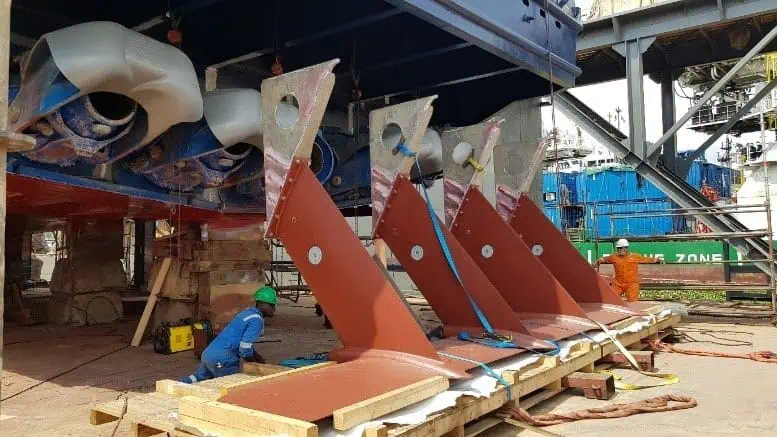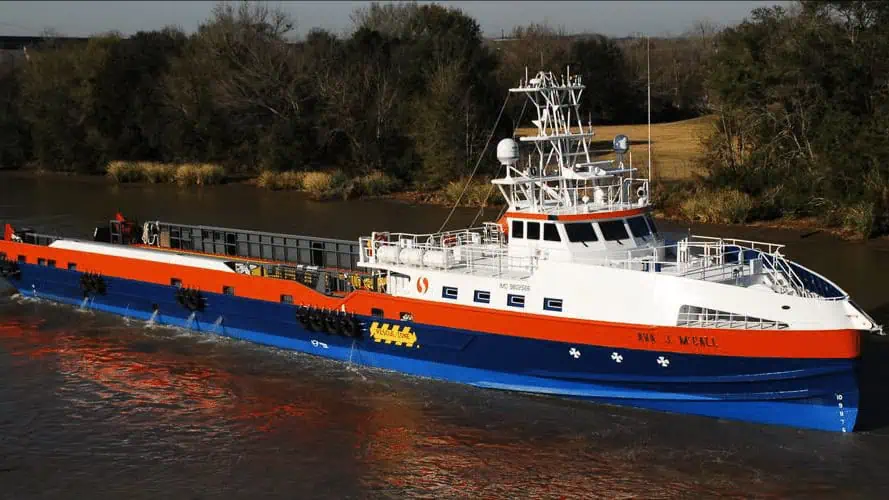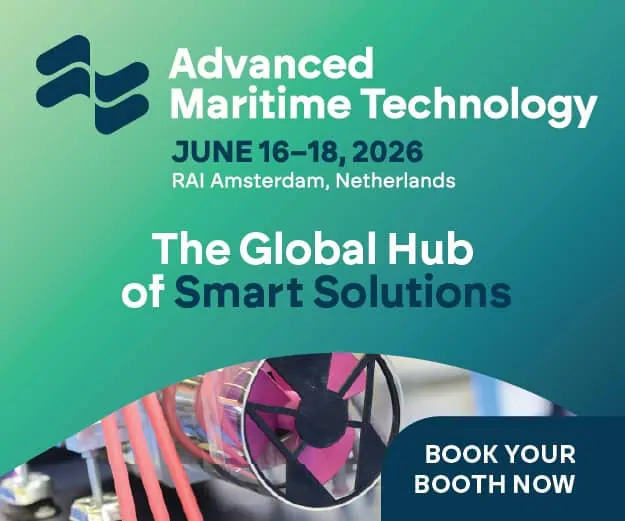Hull Vane, a pioneer in innovative maritime energy-saving solutions, and TotalEnergies, a global multi-energy company, successfully completed a pilot project involving the installation of a Hull Vane® on one of TotalEnergies’ chartered Fast Support Vessels (FSVs). The project aimed to reduce fuel consumption and CO2 emissions, and after several months of operation, TotalEnergies has confirmed an impressive 11% reduction in fuel consumption.
The Hull Vane® is a submerged wing fixed to the transom, which reduces the overall pressure resistance of ships, while also reducing the motions in waves. It’s a patented product supplied by Hull Vane BV, based in The Netherlands. Hull Vanes are installed on a variety of ships, such as patrol vessels, offshore supply vessels, passenger ships and motor yachts, ranging in size from 10 to 108m. With 85+ Hull Vanes in use, it’s a proven solution both in terms of savings and durability. The ratio between new-build and retrofit application is about 50-50.
The pilot project was done on Ava J McCall, a 59m (194 ft) Fast Support Vessel owned by Seacor Marine, and designed by Incat Crowther. The vessel is in operation in West-Africa, transporting goods and personnel to the oil fields offshore Nigeria. Ava J McCall is powered by five waterjets, with a combined propulsion power of just over 10.000 kW. Hydrodynamic studies at Hull Vane showed that the Hull Vane® would save around 10% in fuel consumption at the ship’s typical operating speeds of between 15 to 25 knots. The Hull Vane®, built in the Netherlands, was shipped to Ivory Coast where it was installed during Ava J McCall’s scheduled maintenance period in late 2022.
The Naval Architects of Incat Crowther USA took care of the structural integration of the Hull Vane®. The Hull Vane® is placed underneath the waterjets, and does not increase the draft, the beam or the length of the vessel. Upon completion, DP trials showed no effect on the Dynamic Positioning Capabilities of the vessel, which has DP-2 notation.

Once in operation, the fuel consumption data was compared with the measurements after the last dry-docking, a year ago, to eliminate the effect of cleaning and re-painting the hull. Ava J McCall now consumes 14% less at 16 knots and 9% less at 21 knots. This is a bit higher and very close to the CFD predicted results. Over a full year, the CO2 reduction provided by the Hull Vane® on Ava J McCall amounts to 650 tons. That’s 250.000 litres of diesel less consumed per year.
“We are constantly looking for ways to reduce the carbon footprint of our operations, and when we found out about Hull Vane®, our interest was raised,” said David Flajolet, Marine Specialist at TotalEnergies. The pilot project we did with Hull Vane® has been a success; contrary to most of the decarbonizing systems on board vessels, Hull Vane® does not require active management from the crew and this is a key point for us. Its ability to be retrofitted for a limited cost and technical complexity make the solution a quick win for TotalEnergies. Further to the return of experience with the Ava J Mc Call, it has been decided to make it mandatory on the future Call for Tender for FSIVs in Nigeria.
Niels Moerke, CEO of Hull Vane BV: “There are now six FSV’s operating with Hull Vanes worldwide, and on all of them, savings have been proven to exceed 10% over their operational profile. It has been a real pleasure to work with TotalEnergies, and we are delighted with this solid endorsement of our solution. We think that TotalEnergies is right that oil majors should take the initiative to apply Hull Vane® in the offshore market. Hull Vane® is probably the easiest way for oil majors to reduce their operational CO2 emissions without impacting their actual operation. With relative short payback periods ranging from one to three years for these kinds of vessels, it’s also a risk-free investment. We look forward to design and build the Hull Vanes for other FSVs in the fleet chartered by TotalEnergies.”













